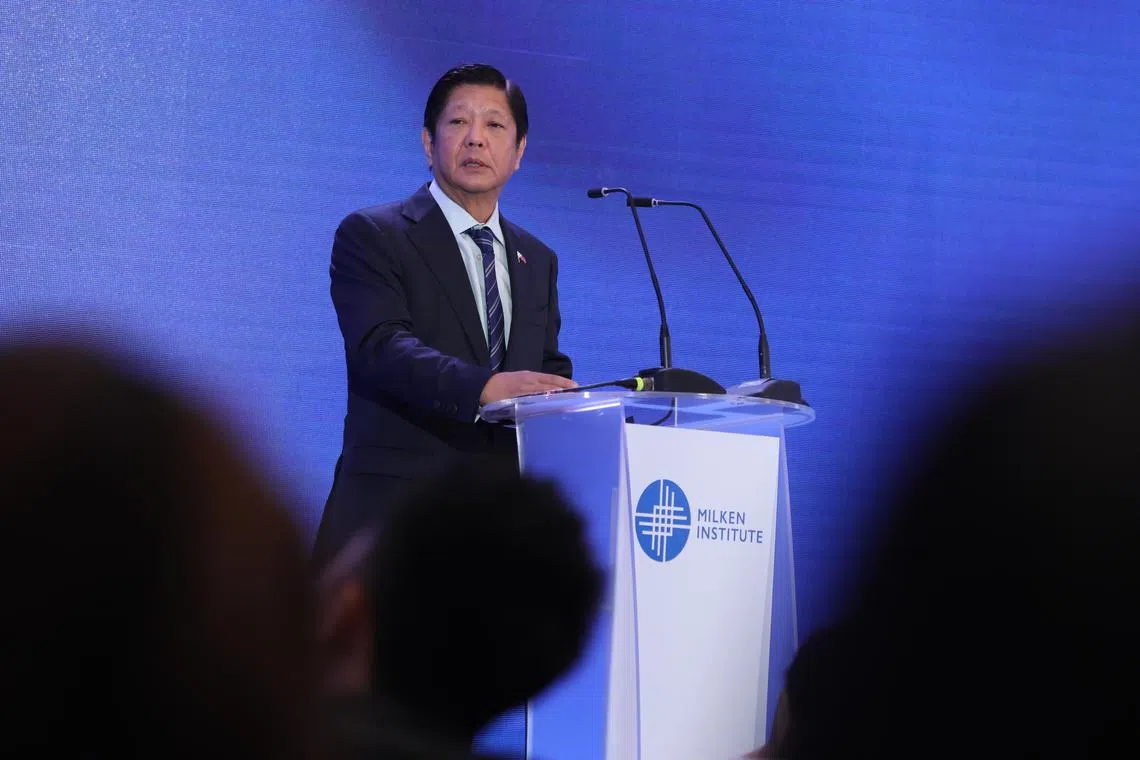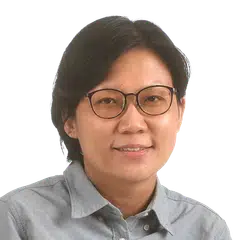Philippines to beef up agricultural sector as it’s unwise to rely on imports: Marcos
Sign up now: Get insights on Asia's fast-moving developments

Philippine President Ferdinand Marcos Jr said his country is trying to put together a value chain in agriculture.
PHOTO: LIANHE ZAOBAO
SINGAPORE - The Philippines aims to strengthen its agricultural sector so that it would not have to depend on imports, said President Ferdinand Marcos Jr.
This was one of “the hardest lessons” the country had to learn during the Covid-19 pandemic, when supply chains were hit and the transportation of food to the markets was affected.
“There was no transportation going on. Everyone was locked down. We unfortunately had to suffer the longest lockdown, aside from China. And that went on for a good long while,” he said.
“But this was a lesson that we immediately learnt, that we cannot now continue to depend on importation, which is what has happened in the Philippines.”
Mr Marcos, who was speaking on Wednesday at the Milken Institute’s Asia Summit 2023 in Singapore, said the Philippines is trying to put together a value chain in agriculture, all the way from research and development (R&D) to retail.
“There are bits and pieces of it that already exist, but they do not work as one system. And that’s what we are trying to achieve and we are slowly making inroads into that problem.”
Noting that the pandemic had shown that relying on imports was unwise, he said: “And so we have continued to develop our agricultural sector and the aspiration, once again, is that we are able to provide a sufficient supply of food at prices that people can afford.”
Mr Marcos concurrently heads the Department of Agriculture.
His comments came amid a steep rise in rice prices in the Philippines, prompting the announcement of price caps earlier in September.
The inflation of rice prices had hit 4.2 per cent in July, the highest since 2019, Reuters reported.
One of the world’s biggest importers of rice, the Philippines has seen its retail rice prices rising further in August, with the prices of some varieties increasing by as much as 25 per cent.
Besides agriculture, the Philippines also hopes to boost its manufacturing sector.
“And the other side of it was that we looked at the GDP (gross domestic product) of the Philippines, and the contribution of services against manufacturing was a little lopsided: 60 per cent to 40 per cent.
“And so we thought we need to get investment into the system so that we can beef up and build up our manufacturing capabilities.”
Mr Marcos told the audience of economic managers and business leaders that this was what had brought him to Singapore and elsewhere, to find out what is needed to make the Philippines an investment-friendly place.
The top concern of investors was power supply, whether the supply is sufficient or prices are high. The second was the ease of doing business, he said.
“The bureaucracy had gone a little bit out of control. That’s something that we have immediately begun to address,” he said, adding that the Philippines is trying to increase its supply of electricity.
Mr Marcos, who turns 66 on Wednesday, will meet business leaders while in Singapore and also attend the Formula One Singapore Grand Prix



